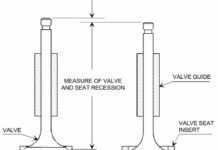I’ve never figured out whether would-be airplane buyers just have short memories or if they something in their psyche predisposes them to accept the most outlandish claims at face value while simultaneously dismissing the grim truth. I am referring here to the quaint industry practice of “buying positions” for new aircraft. This subject comes up this week because I just got a letter from a would-be purchaser of an Eclipse 400.”I recently placed a $100,000 deposit toward an Eclipse 400 in response to an e-mail solicitation from Eclipse Aviation,” the reader wrote. “The agreement allows a full refund until November 2009. Five weeks ago, I requested a refund. I have been informed that there is a delay and was promised a refund in a few days. None came and repeated phone calls have been unanswered. Please warn your readers.”Well, hello? Although we’ve been on the Eclipse Aviation deathwatch since last year sometime, I suppose it’s possible that the general buying public wouldn’t have noticed what we noticed. (Delayed orders, certification issues, unhappy customers awaiting upgrades, not to mention dismissal of founding CEO Vern Raburn last July, all culminating in a bankruptcy filing earlier this month.)My observation is that so enthralled are some buyers with being the first-or among the first-to own a new airplane, that they’ll do almost anything to make it a reality. That includes handing over large checks to start-up companies in an industry where failures outnumber successes and where the fine print on refund policies is just so much useless boilerplate once the company becomes insolvent, which there is a very good chance it will be. When I see the buying frenzy that some of these position offers touch off, I am seized by an overwhelming urge to grab the nearest set of lapels and shake vigorously.The larger issue is the idea of selling positions in the first place. (The cynics among the Eclipse crowd now refer to this as “assuming the position.”) Why is it that the aircraft industry has this unique need to drag its customers into the risk pool of creating a new product? I wrote about this in the November 2008 issue of Aviation Consumer which you can read here.The ostensible reason is that the only way a company can raise capital for a major certification project is to convince investors that there’s actually a market for it. Pre-production position buys do this, according to the accepted wisdom.Whether they do or they don’t, I think the potential for abusing position buyers is overwhelming. Eclipse, in my view, had an absolutely Byzantine set of restrictions and conditions on its refund policy. At one point, it claimed 2,500 orders, but we could never determine if all of those orders included pre-production deposits. This does nothing but distort the perceived value of the positions to the point that trading them for profit (or not) becomes a business unto itself. Some Eclipse holders made tidy six-figure killings, but an undetermined number have been left holding an empty bag that used to contain $100,000.At an aviation event in Florida last month, Vern Raburn sniffed about how “aviation eats its young” and how he was beset by naysayers who said the Eclipse concept would never fly. Well, it did fly, it’s just that it crashed and burned after takeoff. Despite Raburn’s protests, if there had been more skeptics and fewer starry-eyed, unquestioning believers, Eclipse would have still got its airplane built. But fewer depositers would be out their cash as a result.Aviation journalists walk a fine line in such deliberations. On the one hand, readers want us to cheer every airplane and aviation-related product we see for the “good of the industry.” For many readers, flying is a quiet refuge from the harshness of a cruel world. There’s enough bad news out there without us crapping on the grand glory of the next great winged thing.But when we pull our punches-and we most assuredly do that all too often-the casual reader may not be alert enough to read between the lines and may assign credibility and worthiness where little or none exists. In the end, the way to look at pre-production deposits is thus: If you can afford to stand in front of your fireplace and burn an amount of money equivalent to the deposit without missing it, by all means go for it.If not, caveat emptor.
WORLD'S PREMIER INDEPENDENT AVIATION NEWS RESOURCE
- Aviation News
- Recent Updates
- Blog
- Multimedia
- Features
- AllAdventure FlyingAVWeb ClassicsCEO of the CockpitEye of ExperienceFrom The CFILeading EdgeMemoirPelican’s PerchProfilesSay Again?The Pilot’s LoungeBrainteasersCareersCommentaryCompany ProfileFlying Media OffersFun FlyingQuestion of the WeekReader MailShort FinalThis Month In Aviation Consumer MagazineThis Month In IFR Magazine
- Shows & Events
- Flight Safety
- Ownership
- Avionics
- Advertise
© 2024 Firecrown. All rights reserved.


































